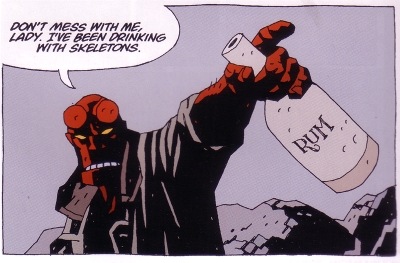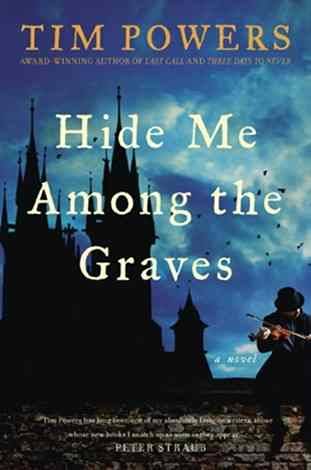I am pretty selective about the comics I read. I've got eleven long boxes full of comics, and in going through them I've noticed something. I don't like superhero comics.
In fact, I don't like superheroes at all.
The difference between a auperhero and a regular hero is that the superhero is born with their difference from the rest of humanity. They were born special, and often the book is about using that specialness in a non-selfish fashion. But you can't aspire to be Superman. No one was born on Krypton, so no matter how hard you try, you can't fly. Even if you wear the cape.
The comics I have read tend to have more human.
Grimjack,
Hellblazer,
Bone,
Castle Waiting,
Grendel and
Jonah Hex. All of these feature protagonsts who are normal, but not average, humans.
There are exceptions, of course. I've got
Mage,
Swamp Thing,
Hellboy,
Girl Genius, and the occasional
Batman trade. You don't think Batman was born with powers beyond that or mere mortals? Where would he be without Wayne Enterprises? WOuld Batman be half as effective if he was not ridiculously wealthy and able to afford the Batwing, the Batmobile, and all those other gadgets?
But when I look at patterns, especially in myself, I wonder about the exceptions. Despite the above sentence, Batman is often closer to being a hero than a superhero. When he is being written as the Darknight Detective and investgating crimes, I'm a lot more interested.
But what about Hellboy attracts me? Alan Moore's
Swamp Thing and Phil Foglio's
Girl Genius are both brilliantly written, transcending the usual tropes of the superhero genre, and
Mage is a rather tasty modernization of the Arthur stories, which I've long enjoyed.
So why Hellboy?

The short answer is because it's awesome.
Hellboy is an exception to the usual superhero tropes. Yes, he's stronger and tougher than the average human, but it's important to note that he was born to destroy the world. Think about that for a moment. He was born to bring about the death of everyone he knows, to split the world and open the way for the apocalypse. That's kind of heavy.
What makes Hellboy such a good character is that as he becomes aware of his "birthright," he intensifies his fight against it. He will not be defined by his birth. He will be himself, not play the role that someone else handed him. The underlying thrust of the series, shot through with stories of killing Nazis, dragons, and trolls, is the growung realization that he is defying his so-called desting and taking his own path. That journey, the personal one, is worth more of my time than a hundred pages of beating up supervillains.




 Everyone who has watched the show is aware that he's an archetypal mad scientist, but he reminds me of the very real, very cruel experiments in America's past. Think of what kind of monster it would take to inject children with experimental chemicals. To me, it's right up there with the doctors in the
Everyone who has watched the show is aware that he's an archetypal mad scientist, but he reminds me of the very real, very cruel experiments in America's past. Think of what kind of monster it would take to inject children with experimental chemicals. To me, it's right up there with the doctors in the